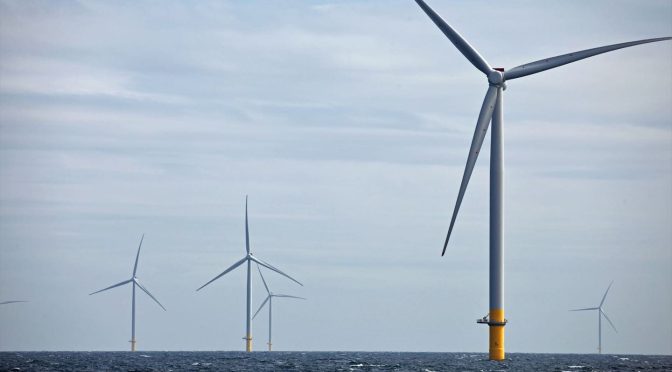Harnessing the power of wind can help deliver clean, affordable electricity to our homes and businesses, create jobs and local economic growth, and fight climate change for generations to come. Now is the time to secure that strong, healthy future for Canadians.
The Governments of Canada and Newfoundland and Labrador have launched the start of the Regional Assessment of Offshore Wind Development in Newfoundland and Labrador. The members of the Committee responsible for conducting the assessment are Glenn Blackwood, Leslie Grattan, Shayne McDonald, Brian Power and Paul W. Saunders.
The final Agreement between the Governments of Canada and Newfoundland and Labrador, along with the Terms of Reference for the Committee were released today. The Agreement and Terms of Reference outline how the assessment will be conducted, and set out its goals, objectives, activities and planned outcomes, as well as key aspects of its governance and administration. Both documents were developed with input from the public, Indigenous Peoples, and environmental, fishing, academic, and industry organizations.
Under its Terms of Reference, the Committee now has 18 months to complete its work. During this time it will engage with Indigenous Peoples, other organizations and the public, gather and analyse information and seek advice from advisory groups. It will then prepare a draft Regional Assessment Report for public review and comment, which will be finalized and submitted to the federal and provincial Ministers.
The main purpose of a regional assessment is to contribute to the efficiency and effectiveness of future impact assessments of projects that are subject to the Impact Assessment Act. In this case, the assessment will allow for early analysis of future wind development offshore of Newfoundland and Labrador, as well as its potential environmental, health, social and economic effects and benefits. This will help inform planning and decision-making for future wind projects in the study area.
“We are building on our partnership with the provinces to improve and facilitate how we work together to conduct assessments and protect the environment. Wind energy is one of the fastest growing methods of generating electricity and will be an important contributor in reducing greenhouse gas emissions and meeting our climate change commitments.”
– The Honourable Steven Guilbeault, Minister of Environment and Climate Change
“As Canada advances towards a sustainable and prosperous low-carbon future, we are working with provinces and territories to unlock economic opportunities on the path to net-zero. Today’s announcement with the Government of Newfoundland and Labrador represents a step forward in deploying offshore wind power, which will provide clean power and good jobs for Newfoundlanders and Labradorians. This is one of many areas where Canada is well-positioned to lead.”
– The Honourable Jonathan Wilkinson, Minister of Natural Resources
“Newfoundlanders and Labradorians have done big things in the Offshore. We’ll do the same with wind energy. Our mission now is to create good jobs, lower emissions, and build up renewables, and these are the workers who know how to get it done.”
– The Honourable Seamus O’Regan, Minister of Labour
“Newfoundland and Labrador recognizes the significant opportunities renewable energy presents in terms of economic development and environmental progress. This is a significant step forward that will benefit developers, the province and the country in the development of offshore wind while ensuring the protection of our environment. We look forward to collaborating with our federal partners on informed analysis as the province continues to maximize its renewable future.
– The Honourable Andrew Parsons, KC, Minister of Industry, Energy and Technology
Quick Facts
- Regional assessments are studies conducted in areas of existing projects or anticipated development to inform planning and the management of cumulative effects and inform future project impact assessments. They are a key part of the implementation framework for the federal Impact Assessment Act.
- There will be two regional assessments for offshore wind development in Atlantic Canada: one in Newfoundland and Labrador and one in Nova Scotia. Each assessment has its own independent committee subject to the same Terms of Reference.
- The Government of Canada has committed to a net-zero electricity grid by 2035. Using clean electricity for transportation, to heat buildings, and to power an increasing number of industrial activities is key to achieving a net-zero emission economy by 2050.
- The Governments of Canada and Newfoundland and Labrador are committed to ensuring respect for the rights of the Indigenous Peoples of Canada recognized and affirmed by section 35 of the Constitution Act, 1982, and to fostering reconciliation with the Indigenous Peoples of Canada.
Associated Links
- Backgrounder – Biographies of Committee Members (Impact Assessment Agency of Canada)
- Regional Assessment of Offshore Wind Development in Newfoundland and Labrador (Impact Assessment Agency of Canada)
Follow us on Twitter: @IAAC_AEIC #OffshoreWind
SOURCE Impact Assessment Agency of Canada



